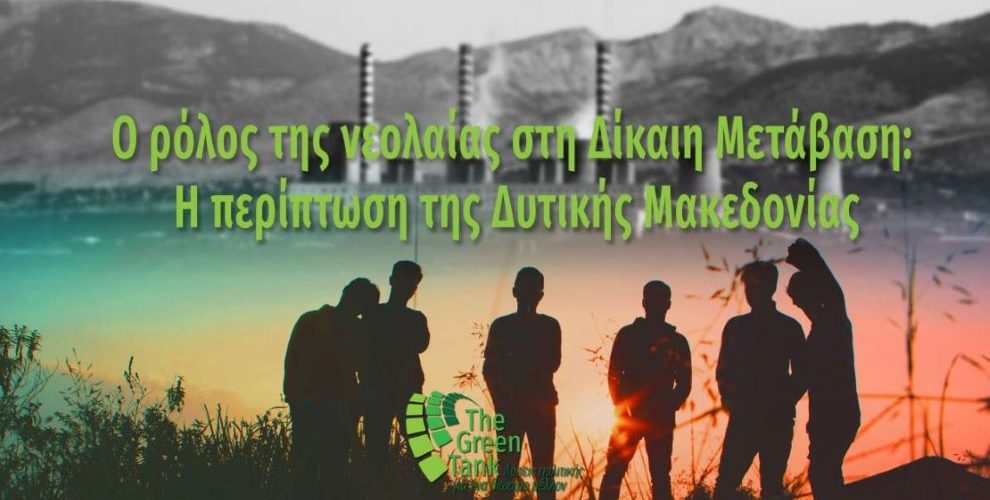The experience gained so far from the preparation of the Just Transition Territorial Plans as well as public opinion surveys show a significant lack of awareness and participation of young people in lignite regions in the planning of transition. However, it is them who will live in the environment shaped by the decisions taken today. Therefore, youth needs an active and institutionally established role in all the phases of Just Transition, from planning to implementation.
The new report by The Green Tank titled “The role of Youth in the Just Transition: The case of Western Macedonia” analyses the current status and examines both institutional and funding opportunities for the active participation of young people in the transition of the country’s largest lignite region, Western Macedonia, to the post-lignite era.
The main conclusions that were drawn from the analysis of the population and socio-economic data of ELSTAT (Hellenic Statistical Authority) and Eurostat up to 2021 are the following:
- Despite the decline in electricity production from lignite in recent years, the latest available data (2019) show that lignite activity remains dominant in Western Macedonia both in terms of Gross Value Added (GVA), accounting for 38% of the region’s GVA in 2019, as well as in terms of the number of employees, accounting for 17.4% of the total workforce the same year.
- The unemployment rate of young people aged 15-29 in Western Macedonia over the years exceeds by far the average of the 96 coal regions of the European Union, estimated respectively at 42% versus 13.3% in 2021.
- The youth population decline in Western Macedonia over the last decade has been higher than in the EU’s coal regions, reaching 16.9% in 2021 compared to 2011, versus 11.7% for the 96 coal regions of the EU, thus reflecting the increasing youth drain observed in the region.
- The rate of young people aged 15-24 years old who are not in education, employment or training (NEET) in Western Macedonia is higher than in the EU’s coal regions throughout the years. However, both the absolute values of the NEET shares and the gap with the average in EU coal regions are decreasing since 2018 (17% and 13% respectively in 2021).
The report also presents in detail the available policy instruments and European and national funding programmes for youth in lignite regions in the current programming period, which, if properly utilized, can contribute to addressing the challenges faced by young people in lignite regions. The report concludes with policy recommendations aimed at strengthening the engagement and participation of young people in the Just Transition such as:
- Establish an institutional role for young people in the Transition’s governance mechanism.
- Create a special Just Transition Fund for Youth drawing on the available European and national resources.
- Incorporate youth drain retention as an indicator for the success of the Just Transition Programme.
- Set up a platform for promoting dialogue and awareness among the youth.
- Establish a Youth Council for Just Transition.
“The Just Transition of the lignite regions is perhaps the biggest development and social challenge that Greece is facing in the current decade. Since the young people in lignite regions are the ones mostly affected by the new production model, they must have an active and institutionally established role in the decision-making processes that will determine their future and their lives. The available national and European resources of the current programming period should be used to this end, and young people’s representatives should be included in the transition governance mechanism. The engagement of the competent authorities to achieve greater youth participation together with the mobilisation and collective action of youth themselves are prerequisites for a truly Just Transition”, said Ioanna Theodosiou, Policy Associate at Green Tank, on behalf of the report’s authors.
The main findings and conclusions of the report will be presented at the Conference – Youth Forum “Youths in EU Regions – Post-lignite era and Development – Innovation, Dialogue and Initiatives” organized by Active Youths OENEF.
The full text of the report is available here.



